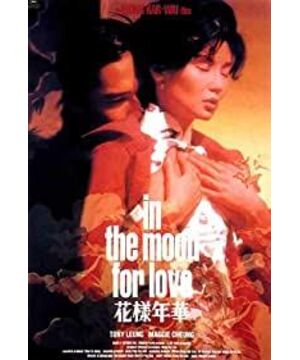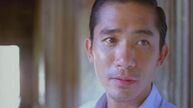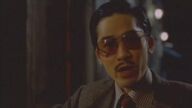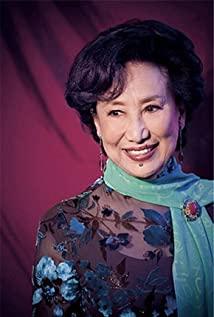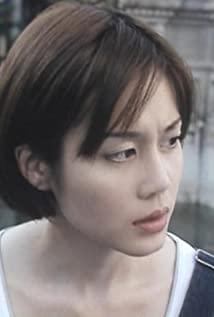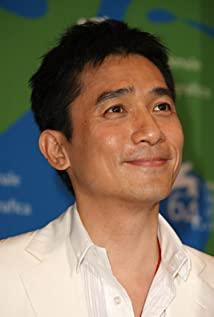It was an embarrassing relative. She kept her head down and gave him a chance to get close. He didn't have the courage to approach her, turned around, and left - "In the Mood for Love" Transparent melancholy and sadness, I think, as a bystander in this short one and a half hour, when watching the undulating plot of this film on the surface, I can also appreciate this kind of poetic but mundane. The narrative technique is amazing, and I think only Wong Kar-wai, who is famous all over the world, can handle the dramatic contradictions and conflicts in the whole film so smoothly.
First of all, the context of the story is narrated unhurriedly. All the character settings and the advancement of the plot are gradually unfolded around the psychological changes of the two protagonists. The excellent carving of details adds to the simple story. Strong artistic expression, the climax of the ending and the foreshadowing of the previous paragraph are smoothly and smoothly connected, without the slightest procrastination, without the slightest pretence, Su Lizhen, who was crying in the empty room of despair, Zhou Muyun talked to himself in the stone cave, and Su Lizhen traveled thousands of miles. I went to the residence of Singapore Zhou to take the slippers. All this was unexpected and also unexpected. There was no rude statement, nor did it leave an open ending, but a very subtle ending. Let the still puzzled audience suddenly understand the director's good intentions. After Zhang Shuping's almost harsh editing, the story maintains a rigorous coherence, mainly because redundant trivial and lengthy transitional shots are filtered out. Although the logic of the story has been dismembered to a certain extent, and even the overall structure of the story will appear slightly thin, but it does not affect the charming texture of the viewing experience at all, which reminds me of my favorite two The directors Iwai Shunji and Shinkai Makoto, maybe good movies will have similar places to compare, when we talk about "April Story", we don't care about the storyline of this movie, only the Uzuki Yukino in our minds. The romantic scene of riding a bicycle in the beautiful streets of Musashino, I think of the handsome young man reading in the sweet cool breeze in "Love Letter", as if the time of galloping stopped abruptly in an instant, all the words of praise are so unbearable When we think of "Five Centimeters Per Second", we can think of the train running in the boundless snowy night, tearing through the dark curtain like a sharp sword, carrying the stagnant thoughts to the city where the lover is. Said that Wong Kar-wai's films are similar in purpose to these films, they are both surging and stirring a poetic haze in the blood, all the sadness and joy are symbolic, a look, a smile, it is better than Thousands of words, he focuses on the artistic conception, without any superfluous places, which is similar to the Chinese ink painting that pays attention to freehand brushwork, but his paper is a historical background with a strong sense of age, and the lines are the impetuous hearts of all living beings. The added distress, and the paint is the unique and gorgeous emotions of each person, such as the sorrow of the broken threads, the surging ecstasy in the silence, and the naive and straightforward, so we will have a kind of feeling after watching "In the Mood for Love" The feeling of loss, we don't understand where in our heart is the pain, it is like a red and swollen bitten by a poisonous insect.The infatuation is a poison that makes people unable to stop. In contrast to today's domestic films, the content is greater than the form. It is either a variety of dazzling skills or a subjective criticism, and it devastates the aesthetic bottom line. All kinds of labels, eager to tell everyone the connotation of this movie, so more and more movies that are not well received are rejected by the cinema line, and then gradually fade out of sight.
In the Mood for Love, this prose and poetic narrative format can fully focus the audience's attention, focusing on the characters rather than the plot. The carving of the characters makes the story more full and three-dimensional. It is also the main axis of the film and an extension of the story. , he let everyone understand that the men and women in the movie are not big stars with many star halos, but "we", two idiots who started out without knowing it, but went all the way, they can be any of us, like being Puppets manipulated by people, they are in the center of the empty stage, and together they interpret a mournful modern love story. We are not the walking dead. After watching the whole movie, in addition to sighing at the rough feelings of the hero and heroine, I will also have a cordial resonance with the things interspersed in the story that can allude to the characteristics of the times and have a common memory of history. The cheongsam is the most symbolic prop. So far, the 27 pieces of cheongsam that Maggie Cheung has exchanged in the movie are still very popular among fans. The cheongsam symbolizes nobility and grace. The temperament exuded from the inside out, nostalgia represents the red tape and strict rules of the old world, which is in stark contrast to Liang Chaowei, the little-known writer of martial arts novels who is a little unruly. The director made full use of the metaphorical montage technique. For example, the feathers in "Forrest Gump" correspond to Forrest Gump's magnificent life journey and finally return to calm and relief, and the roses in "American Beauty" symbolize high-spirited youth and danger. The romance of the film also has many remarkable points, such as the wet street symbolizes the emptiness and the same loneliness of the two people, the clock represents the passage of time, and the lingering smoke symbolizes Zhou Jiyu, who is in a state of turmoil. The hesitation in the heart, the mirrors that appear in many places, symbolize that the future of the two is just like a mirror, all the props are expressing the changes of the protagonist's inner emotional world, which is a unique and complex film language.
The narrative perspective of this film is also very interesting. The slow editing and the simple plot are mixed into a more special viewing experience. We are not the onlookers, but as a witness, we should not bring Any criticism or criticism to look at these two people is more to experience the psychological activities of the two people's entanglement. Seeing Su Naihui's shoes under the bed, etc., are all manifestations of this technique, including Mrs. Chen and Mr. Zhou depicted in "The Absence of Characters". I remember many typical scenes. Su Lizhen wiped her sweat with a white handkerchief at a busy noodle stand, surrounded by scorching heat, diners feasting, and a busy boss, but she was like a noble white lotus swaying in the mud of the floating world. Spotless. Leung Chiu-wai, who leaned against the dilapidated wall, mused while smoking tobacco. Looking up at Su Lizhen under the dim yellow light, her young but sad face reminded people of the sentence, "Most people live in peaceful despair." All of this is so unforgettable that it is difficult to break away from the atmosphere created by the movie for a long time after watching the movie, and the indescribable feeling of melancholy spreads throughout the body like bacteria.
The tone of the whole story seems to bring people's thoughts back to the 1960s and 1970s, the old Shanghai that has been devastated but still maintains its elegance and grace. Wong Kar-wai said: "Everything comes from my hazy impression of Shanghai when I was young. "In the background of fierce conflicts and collisions between the old and new eras, all the people and all the objects in the story reflect the changes and rapid changes of the times, but the director uses such a magnificent brushstroke to describe a paragraph that seems to be in the present. A bit of a boring modern love story. There is no colorful modern city, no wide streets full of traffic, telephones were not popular at that time, and people could often exchange letters to express their love. It still maintains a gentle and simple quality, but under the influence of the new trend of thought, the belief that has been unswerving in the heart for a long time has been questioned, and the blind and even paranoid praise and reverence for marriage have long disappeared. Lovers, so much that they showed surprising tolerance and understanding for the extramarital affairs that were criticized and scorned in the past, so the two extramarital affairs that appeared in the two episodes in the movie are the true portrayal of the living conditions at that time, one is Su Lizhen's boss, One is their lovers. Fragmented creeds, and the rapid development of urbanization have brought about the general loneliness and barrenness in people's hearts, and the unreasonable contract that links two people's lives through marriage is falling apart, alienation, fear, anxiety, imbalance, and The feeling of drifting away from the homeland is a mixture of various factors. The questioning of beliefs haunts everyone in this era, and it dismembers all the enslavement and imprisonment that people have always carried in their hearts. Extreme, but unprecedented liberation and turbulent world, two equally hesitant hearts collided at an appropriate node by chance. Looking for the redemption of the soul in the damp memory, in the painful yearning and the old pleated years, I wrote that period of time in the Mood for thousands of times. The story opened a gorgeous curtain, but it always proved the cruel side of love with a sad ending.
Zhou Muyun, played by Tony Leung, and Su Lizhen, played by Maggie Cheung, are the typical epitome of the contradiction between the two inner values of people in this era. They are warm and subtle, hot and forbearing. Whether to choose freedom as one wishes, or to abandon the feudal dogma that has taught others for thousands of years. And the moral shackles that have long been ingrained, for two obsessed men and women who are obsessed with extramarital affairs, it is indeed a choice worthy of repeated consideration. This is not a problem that we modern people also encounter. It is precisely because they are also in the whirlpool of an extramarital affair. Their respective lovers colluded together at some point. They seem to have the intersection of fate and have a feeling of "the same world and fallen people". They observed together. The other two acted like a hound along the blood trail looking for a corpse, even though they already knew what awaited them at the end. Maybe it was escapism to cover up their long-cherished thoughts about marriage, maybe it was They didn't dare to face betrayal and take chances, so they rehearsed the life trajectory of the other two if they had something to do with each other. From acquaintance to entanglement, they also guarded each other from the beginning, to understanding, and finally, they seemed to feel a little pity for each other. There are two episodes in the movie where Maggie Cheung leans on Tony Leung's shoulder and weeps. One is when Zhou Muyun helps Su Lizhen to ease the obstacles in her heart and let her confront his lover with an equal status or the attitude of a normal wife, but She has never been able to really let go, after all her love is a kind of self-dedicating love, just like she said, "I never thought that marriage is so complicated, I thought it was enough for one person to do well, but Two people are together, but doing well by yourself is not enough." It was Su Lizhen's long-standing attitude towards marriage that finally led to her own tragedy. She lowered herself to the dust to love someone so desperately that she ignored the needs of marriage. It is not so-called dedication, but equality and respect. In another episode, they rehearsed the scene when they parted ways. Liang Chaowei actually revealed his heart under the guise of acting. He seemed to laugh, but he told his struggles calmly and calmly. The bond has long been unbreakable, and Su, who has always pretended to be calm, finally let go of the restraint he had always held, his eyes were like a sea breaking a dike. Say goodbye to foreshadowing. In fact, Wong Kar-wai has always been a person who likes to tell stories with pictures and music. Li Yaohui and He Baorong danced sweetly to the rhythm of music in "Breakthrough". In front of the mirror, she twisted her waist uncontrollably. In "Chongqing Forest", Faye Wong showed her youthful and lively side in the melody of "Dream Man", so the lines in this film are poor and pitiful, only the lines that can connect the plot There are very few, and more of them unfold in the form of dialogues, without any emotional fluctuations, just pale and simple dialogues, eliminating all interference and superfluous foreshadowing, allowing people to scrutinize the psychological activities of the protagonist through the obscure information in the lines. , to deepen the sublimation of the film's plot line, such as a dialogue when they were eating in the restaurant "Why call my company?" Su Lizhen said casually while putting food in her mouth. "I want to hear your voice," Zhou Muyun said without hesitation, looking at her with a slightly provocative affection. "You are quite like my gentleman." Zhou gave Su a meaningful smile after hearing it. Su, who didn't know the reason, was stunned for a moment, then he understood, and then avoided Zhou's aggressive gaze, embarrassed. The few words you came to me laid the groundwork for the lingering love story between the two of them. The eyes were full of affection, and the air was filled with ambiguous and sticky nostalgia. It can be said that if the two were not meticulous and applauded. If there is no such excellent understanding of language logic and control of the rhythm of the plot, this film will be tightly confined to the stereotyped linear plot development mode, and it will just become a simple type film about extramarital affairs. If I have a ferry ticket, will you come with me? If there is another ferry ticket, will you take me away? The reason why a classic can become a classic is that it can be washed for a long time and still shine , is that it is not describing a story, but exploring human nature and the purest meaning of life. People from different countries, different skin colors, in different regions and cultural atmospheres, as long as they have all the complex elements of human emotions, joy, Sadness, despicableness, depression, greed, joy, cruelty, you can find your own shadow in the movie. It can be said that the movie is the true portrayal of ordinary life. It can not only resonate strongly on the psychological and emotional level, but also use more Delicate and realistic techniques interpret life, interpret and refine those illusory ecstasy and damp sadness in life. This movie really does it. She came to the hotel happily all the way. She finally broke through the shackles of thought that once made her unable to move an inch, and turned to the sweet love he once held dearly. Her mood at the moment, and at this time the camera switched to Tony Leung, a cold and melancholy face was imprinted in the yellow light, Maggie Cheung's menacing joy of happiness at her fingertips, and Tony Leung's quiet silence, quiet and moving , one sad and one happy, both refreshing and complementing each other, parallel montage is really a feast for the eyes, Zhou's sneer, I don't know if it's a ruthless ridicule of the woman who had thrown herself into the trap and didn't realize it, or to herself The selfish and narrow-minded ridicule and criticism, when he left, his desolate and pathetic back gradually faded away, and disappeared at the end, leaving Maggie Cheung waking up in an empty room crying sadly, mourning the psychedelic but real beauty time. Before this, I had been puzzled by this, why Zhou Muyun chose to disappear after breaking the solid moral barrier of Su Lizhen's heart, maybe the two of them never really fell in love with each other, this forbidden love is something they can't even think about, Maybe they are all lost in the complicated emotional game between men and women, confronting their absolute loyalty to marriage without fear, and falling into a stubborn and tortured tug of war, while Su Lizhen, who is simply tired of love, On the other hand, Zhou Muyun, who was bruised and damaged by his feelings, was destined from the beginning that two people who had different understandings of love would never be able to go together. The ambiguous physical contact is Zhou and Su after rehearsing their separation scene, he hugs the torn sad-drenched Su, the crying Su trembling in his arms, maybe it's not love, but built in a vast and indifferent city Under the thin emotional connection between the gradually indifferent people, the understanding and trust, they collided because of their sad fate, and sparked a spark. Without this experience, the two of them may have a hard time. They found something in common in each other, but when Zhou woke up, a plan of revenge emerged spontaneously. Zhou Muyun, who had been very considerate to Su a second ago, turned into a vengeful devil. In fact, many scenes have already laid the groundwork for this ending. For the first time, I asked Su Lizhen to come to the hotel, comforted Su Lizhen who was leaning on her shoulders on the long street with no people, and tricked Su Lizhen to herself but fled. These three Duan Du showed a close-up of Tony Leung's facial expressions, with the same indifference and gloom. The director did not directly explain the reason for Zhou's departure, but left the answer in the movie, allowing the audience to discover and interpret it for themselves. The cruelty of Tony Leung is that he knows that if he wants to hurt someone, he must learn how to love someone. If it's all just a seamless revenge plan, just his step-by-step director to enjoy the Avengers victorious gesture at the end, then the core of this movie is too clichéd, and we don't need to spend too much time watching one. The narrow-minded man responded to the despicable betrayal, "Those years that have disappeared are like a piece of dusty glass, which can be seen but cannot be grasped. He has been missing everything in the past. If he can break through the dusty glass Glass, he will go back to the years long gone". He revisited the old place and returned to the room he once lived in, but although times have changed, that time has become a memory of the past "this situation can be remembered, but it was lost at that time", when he passed Su's room, he still After hesitating for a long time, perhaps at that time he realized that he seemed to care more about Su Lizhen than revenge, but he was so immature back then, and the solid and indescribable things that lie between them were the mountains and mountains that he could only cross, It's like the supreme treasure who resolutely left under the city tower in "Journey to the West". He knows a lot of things, and it's useless to look back. The only way to keep a relationship fresh is to put him in the memory and let it wither again and again. The heart blooms and then withers.
It should be from this movie that I fell in love with Tony Leung. In the movie, he is elegant, somber, and even a bit ruffian. Many women will fall. I think the best performance is to perfectly integrate himself and the character. Together, we will jointly promote the development of the plot. A good script, and a director who can focus on not being tainted by the materialistic social atmosphere, first of all, he must be able to tell stories, and have excellent and skilled actors. It is enough to integrate into a film. good work. , Aiming at the disadvantages of the times, in today's China's film industry is booming and the box office is rising steadily, there are not many people like Tony Leung who can interpret a character so penetratingly, stiff expressions, shocking lines, dog blood The plot and embarrassing stunts have made him a freak in today's Chinese film environment. In this era of unpopular films that dominate the screen, the media public opinion is full of false information, which must also mislead the viewing of the film. With a strong consumer taste, a film with a good reputation finally eclipsed the box office, and it has no choice but to become a box office poison. A few of Tony Leung's shots are particularly impressive. One is a picture of a man smoking a cigarette while leaning against a stairway wall with a face paralyzed. A sad and speechless man under the dim yellow and lonely light is surrounded by a large darkness as thick as ink. He is particularly pathetic. In such a scene with artistic atmosphere and deep meaning, the director vividly presents the image of a man who is forbearing after knowing his wife is having an affair. His heart is suffering in pain, he is alone with the shame of being betrayed by his lover, or he is rethinking the meaning of his marriage in name only, his melancholy is like smoke in the dark alleyway soaked by cold rain The inside evaporates, and it impacts the audience's heart all the time, producing a hazy resonance. There is also a scene where he is sitting at the desk under the lamp, just a back view. This perspective gives people a sense of prying, allowing people to speculate on the complex and fluctuating psychological changes of this man from a calm and onlooker perspective, using cigarettes metaphorically. The dense smoke depicts his loneliness and his confusion from the side. This kind of paranoia has a strange aesthetic, but it gives people a refreshing visual experience, which makes people interesting to analyze his state of mind at this time. , and indulge in this kind of freehand shot with a little blank. Perhaps this unprecedented feeling can only be expressed exclusively from the unique melancholy temperament of Tony Leung. When he finally left the 2046 hotel room where he had too many good memories with Su Lizhen, a wide-angle panning shot gave Tony Leung's back, and then stopped abruptly. At this moment, his back did not have the embarrassing feeling of running away. There is a tragic and sad feeling. There is no cumbersome description of how he left. The emotion displayed by this empty and rich picture cannot be described by any mournful rhetoric. Desolate and desolate in the empty room full of rusted memories. There are so many wonderful places in this movie, including the contrast of light and dark, and the emotional colors rendered by different lights. Every time you watch it, you can find a place that makes you ecstatic. It is no wonder that The Times commented on this movie: The film is a luxurious visual feast, with beautiful costumes and lively music replacing dialogue between characters. The director from Hong Kong has made the best film in 10 years, surpassing Hollywood blockbusters, cartoons and documentaries" "In the Mood for Love" has always been a masterpiece that cannot be ignored in the long history of Chinese movies, and it deserves it .
View more about In the Mood for Love reviews


